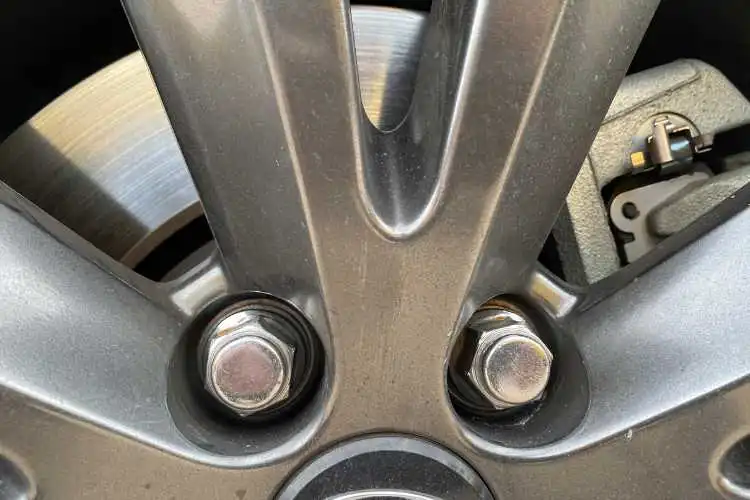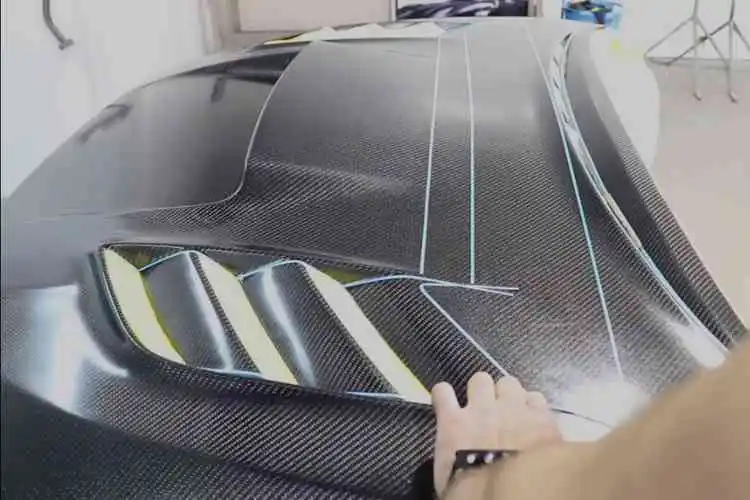Will Vinegar Damage Car Paint?
If you’ve ever wondered about using vinegar to clean your car paint, you’re in the right place.
While vinegar has some handy cleaning properties, there are a few things you should know to keep your car’s paint job looking its best.
Will Vinegar Damage Car Paint? Vinegar’s acidity poses a risk to car paint. Prolonged or undiluted contact can compromise the paint’s protective layers, potentially causing fading and deterioration. Utilizing specialized automotive products is advised for safe paint maintenance.
What is Vinegar?
First, let’s talk about what vinegar is. Vinegar is a common household product that’s made by fermenting ethanol (a type of alcohol) with acetic acid bacteria. The resulting liquid is a mild acid that’s often used for cleaning and cooking.
Will Vinegar Damage Car Paint?
Vinegar, a dilute acetic acid solution, has been recognized for its various applications. When it comes to car paint, caution is advised.
While vinegar’s acidic nature can aid in removing certain stains and contaminants, prolonged or undiluted contact may deteriorate car paint.
The acid can erode the protective clear coat and compromise the paint’s integrity, leading to fading, discoloration, or even peeling. Prudent usage involves diluting vinegar, using it sparingly, and promptly rinsing the area.
However, for preserving car paint, dedicated automotive cleaning products are recommended to avoid potential damage from vinegar’s acidic properties.
Can Vinegar Damage Car Paint?
The short answer is yes, vinegar can damage car paint. Vinegar is acidic, and over time, it can eat away at your car’s paint, potentially causing rust and other damage. In addition, vinegar is not safe to use on some materials, such as aluminum or cast iron.
What Can You Use Vinegar For?
While vinegar is not safe for use on your car’s paint, there are still plenty of ways you can use it around your home. For example, vinegar can be used to clean windows, remove stains from clothing, and even kill weeds in your garden.
What Should You Use Instead of Vinegar?
If you’re looking for a safe and effective way to clean your car’s paint, there are plenty of alternatives to vinegar.
One great option is a pH-neutral car wash soap, which is designed to clean your car’s paint without damaging it.
You can also use a clay bar to remove stubborn contaminants from your car’s paint, or a wax or sealant to protect your car’s paint from the elements.
How Can You Protect Your Car’s Paint?
In addition to using safe cleaning products, there are other steps you can take to protect your car’s paint.
For example, you can park your car in a garage or under a carport to shield it from the sun’s harmful UV rays.
You can also apply a wax or sealant to your car’s paint to provide an extra layer of protection.
What Should You Do if Your Car’s Paint is Damaged?
If you notice damage to your car’s paint, it’s important to take action right away. The longer you wait, the more damage can occur, potentially leading to rust and other issues.
If the damage is minor, such as a small scratch or chip, you may be able to fix it yourself using touch-up paint.
However, if the damage is more extensive, it’s best to take your car to a professional auto body shop for repairs.
Does Vinegar Damage Auto Paint?
Vinegar’s acidic composition, primarily acetic acid, raises concerns regarding its impact on auto paint.
Prolonged or undiluted application of vinegar can potentially harm auto paint by weakening the protective clear coat and causing paint degradation.
Discoloration, fading, and even peeling are plausible outcomes. Diluted vinegar, if used carefully and promptly rinsed, might aid in stain removal.
However, for safeguarding auto paint, resorting to specialized automotive cleaning solutions is recommended over the use of vinegar to prevent potential harm to the paint’s surface.
Will Vinegar Damage the Car Interior?
The impact of vinegar on car interiors warrants consideration. Its acidic nature, attributed to acetic acid, suggests potential risks.
While diluted vinegar might be used to clean certain surfaces, caution is advised. Prolonged or excessive application could harm materials like leather, vinyl, and plastics. Discoloration, deterioration, or loss of luster might result.
Conducting a patch test in an inconspicuous area is prudent. Preferably, opt for products formulated for car interior cleaning to ensure preservation and longevity without subjecting the interior to the potential adverse effects of vinegar.
Can You Use White Vinegar on the Car Dashboard?
The suitability of white vinegar for car dashboards requires careful consideration. White vinegar’s mild acidity suggests potential efficacy in removing certain stains.
Diluted vinegar might be cautiously applied to non-sensitive dashboard surfaces, followed by thorough rinsing. However, the acidic nature could, over time, affect materials like plastics, leading to fading or deterioration.
Prior testing on an inconspicuous area is recommended. Specialized dashboard cleaners are advised for optimal maintenance, as they are formulated to minimize potential risks associated with vinegar’s acidity.
Can You Use Vinegar To Clean Your Car?
Utilizing vinegar as a car cleaning agent necessitates careful deliberation. Its acetic acid composition can facilitate stain removal on certain surfaces.
Diluted vinegar, when judiciously employed, may aid in removing grime and buildup. However, caution is warranted due to its potential to damage sensitive materials such as paint, leather, and plastics.
Prior patch testing is advisable. Optimal car cleaning entails using automotive-specific cleaning products designed to mitigate potential risks associated with vinegar’s acidity, ensuring effective cleaning without compromising the vehicle’s integrity.
How to Make a Vinegar Solution that is Gentle on Car Paint?
Creating a car-safe vinegar solution requires precision. Dilute white vinegar with water in a 1:4 ratio (1 part vinegar, 4 parts water).
This balanced mixture preserves its cleansing properties while minimizing acidity. Prior patch testing is advisable. Apply lightly with a soft cloth, gently removing contaminants.
Swiftly rinse with water and dry. However, for comprehensive car paint care, automotive cleaning products are recommended to ensure gentle and effective maintenance.
How Should I Use Vinegar on My Car?
Prudent application of vinegar on cars entails careful steps. Dilute white vinegar with water (1:4 ratio) to create a mild solution. Patch test on an inconspicuous area.
Apply sparingly with a soft cloth to tackle stains or debris. Promptly rinse with water and dry. Caution is crucial, as vinegar’s acidity can harm paint and interiors.
Opt for specialized automotive cleaning products for comprehensive maintenance to avoid potential risks associated with vinegar use.
Can You Use Vinegar on Car Paint?
Caution is advised when considering vinegar on car paint. Its acidic properties could harm the paint’s protective layers, leading to fading, discoloration, or deterioration.
If used, dilute white vinegar with water (1:4 ratio), apply gently, and rinse promptly.
Specialized automotive cleaning products are preferable to safeguard paint integrity and avoid potential risks posed by vinegar’s acidity.
Conclusion
In conclusion, while vinegar is a versatile household product, it’s not safe to use on your car’s paint. Vinegar is acidic and can cause damage to your car’s paint over time.
Instead, opt for safe cleaning products designed specifically for use on car paint, and take steps to protect your car’s paint from damage.
By following these tips, you can keep your car looking its best for years to come.



